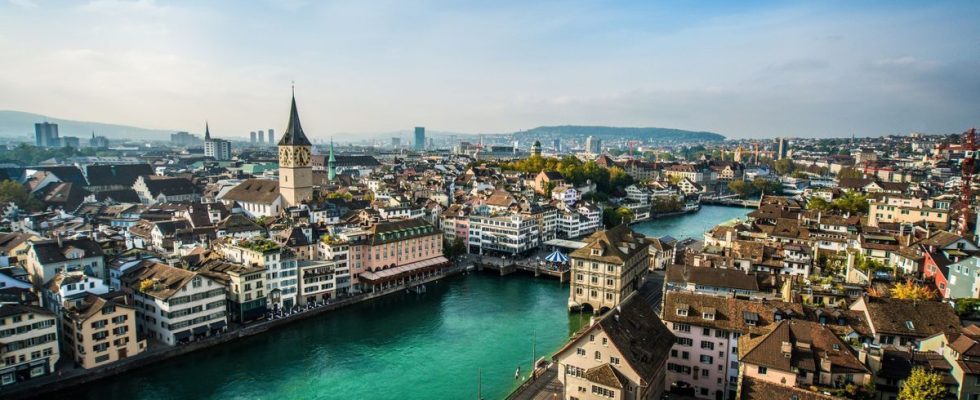Published on
Updated
Reading 2 min.
Although they often promise more job opportunities and a rich cultural life, European capitals are not the places on the old continent where residents are most satisfied with their lives. We need to move further away from this type of urban development, without mentioning the countryside, to meet happy Europeans.
From the start of the health crisis, there has been a lot of talk about this urban exodus, consisting of both teleworkers and retired couples leaving big cities to prefer the countryside. As for those who did not choose going green but a new life in medium-sized cities like Angers, Biarritz or Sète, it was a matter of deciphering, peeling, dissecting the concept of the quarter city. hour. This was then analyzed in all its aspects in order to explain how this urbanization plan providing for putting all daily needs within an hour of home constituted the future… We are somewhat little come back since last April a study carried out jointly by Inrae, the Agro Dijon Institute and the real estate platform MeilleursAgents qualified this phenomenon, recommending that it was better to avoid describing it as an urban exodus, and referring more to “moves from the cities to the countryside which have been reinforced “during the health crisis.
While remaining measured in the analysis of the success of small and medium-sized towns as suggested by this study, we note that almost four years after the start of the pandemic, there is still a link between quality of life and these categories of municipalities, compared to large metropolises. The trend has not run out of steam, at least not on a European scale. The European Commission has in fact just submitted a report about the cities offering the best quality of life within the Union. No less than 83 cities were analyzed while more than 70,000 people were interviewed. Ultimately, Europeans are more satisfied with their lives when they live in what this report describes as a “small” city. Of course, in the capitals, there are more job opportunities, but generally speaking, the opinions collected for this analysis converge towards the idea that we feel safer in this type of municipality. These are also perceived as cleaner and less noisy. Elderly people and families with children embody the profile of residents who feel good there.
Which European cities make you happy?
To make this analysis a reality, the European Commission even adds a ranking of the cities that make their inhabitants the happiest. With the exception of Copenhagen (Denmark) which benefits from the second best overall satisfaction estimated at 96%, but also Stockholm (Sweden) which obtained 95%, the demonstration becomes obvious with the presence of cities like Groningen in the Netherlands (96%) but also Gdansk in Poland and Leipzig in Germany.
In the statistical sense of the term, we obviously cannot indicate these destinations as “small” cities since they have more than 200,000 inhabitants, and even more than 415,000 for the holder of first place, namely Zurich (Switzerland), and up to almost 500,000 for the pearl of the Baltic Gdansk. We thus understand that it is not so much the population density that is targeted, but rather the fact of being a capital which makes Europeans less likely to consider their standard of living qualitatively.
Good in his body, good in his head!
Here are the 10 European cities whose residents are the most satisfied:
1. Zurich (Switzerland) (97%)
2. Copenhagen (Denmark) (96%)
3. Groningen (Netherlands) (96%)
4. Gdansk (Poland) (95%)
5. Leipzig (Germany) (95%)
6. Stockholm (Sweden) (95%)
7. Geneva (Switzerland) (95%)
8. Rostock (Germany) (94%)
9. Cluj-Napoca (Romania) (94%)
10. Braga (Portugal) (94%)
